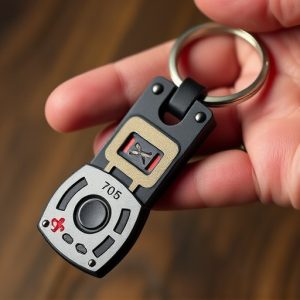Defensive Keychain Legal Carry Guidelines: State-by-State Permits Explained
In the US, keychain weapon permit laws vary widely by state, with requirements including age (18+),…….
In the US, keychain weapon permit laws vary widely by state, with requirements including age (18+), safety training, clean criminal record, proof of need, background check, and safe handling proficiency. Some states offer permissive access with minimal hurdles, while others have stringent regulations with lengthy waiting periods and rigorous training demands. Understanding these Keychain Weapon Permit Requirements is essential to comply with local laws and avoid legal consequences. Confirm legality before applying, gather necessary documents like ID, residential address, background check reports, and complete application forms with fee payments and interviews with law enforcement.
“In today’s ever-changing world, personal safety is a top priority. For those seeking to protect themselves discreetly, defensive keychains offer a unique solution. This article provides a comprehensive guide to understanding and navigating the legal carry guidelines for keychain weapons across various states. We’ll explore the requirements for obtaining a Keychain Weapon Permit, break down state-specific regulations, and offer insights into the process, ensuring you’re equipped with the knowledge to make informed decisions regarding your personal defense.”
- Understanding Keychain Weapon Permit Requirements: A Comprehensive Overview
- State-by-State Legal Carry Guidelines: What You Need to Know
- Navigating the Process: Obtaining Your Defensive Keychain Permit
Understanding Keychain Weapon Permit Requirements: A Comprehensive Overview
In many states, defensive keychain legal carry guidelines are a relatively new and evolving area of law. To understand the requirements for obtaining a keychain weapon permit, it’s crucial to start with the fundamental definitions. A defensive keychain refers to a small, often concealed, device designed to protect against physical harm, typically in situations where traditional self-defense options may not be readily available or feasible. The term “permit” signifies authorization from a relevant governing body, usually a state or local authority, allowing an individual to carry such a device legally.
The specific requirements for keychain weapon permit applications vary across states. Common criteria include age restrictions (typically 18 years or older), completion of a safety training course, and a clean criminal record. Some jurisdictions may also mandate proof of need, such as personal security concerns or previous experiences that necessitate an immediate self-defense solution. Additionally, applicants might be required to pass a background check and demonstrate proficiency in using the defensive keychain safely and responsibly.
State-by-State Legal Carry Guidelines: What You Need to Know
In the United States, the legal framework for carrying a keychain weapon varies significantly from state to state, with each having its own set of regulations and requirements known as keychain weapon permit guidelines. Understanding these rules is crucial for any individual looking to legally carry a self-defense tool on their keychain. The keychain weapon permit requirements typically cover aspects such as age restrictions, background checks, training, and specific types of weapons allowed. Some states have relatively lenient laws, enabling residents to carry certain types of keychain knives or guns with minimal red tape.
On the other hand, several states have stringent regulations that make obtaining a permit for a keychain weapon challenging. These guidelines often include mandatory waiting periods, extensive training requirements, and thorough background checks. It’s important for citizens to research their state-specific laws before considering carrying a keychain weapon to ensure compliance and avoid any legal repercussions. The diversity in keychain weapon permit requirements underscores the need for informed awareness among users.
Navigating the Process: Obtaining Your Defensive Keychain Permit
Navigating the process of obtaining a defensive keychain permit involves understanding specific legal requirements and guidelines set by your state. Unlike traditional firearms permits, keychain weapon permits have distinct criteria that vary from place to place. The first step is to research and confirm if your state even allows the possession of such devices, as not all jurisdictions recognize them due to potential safety concerns.
Once you’ve confirmed legality, gather essential documents like proof of identity, residential address, and possibly a background check report. Some states may also mandate training or certification for responsible use and storage. It’s crucial to review the keychain weapon permit requirements in detail, as they can include specific application forms, fee payments, and interviews with law enforcement officials.
In conclusion, navigating the legal framework for carrying a defensive keychain is a crucial step towards personal safety. By understanding the specific requirements of your state and meticulously following the process, you can obtain the necessary permit to legally carry your defensive keychain. Remember, staying informed and prepared is key to ensuring your well-being and peace of mind.

